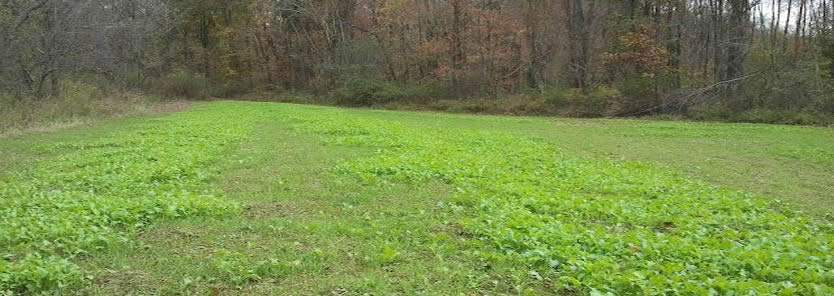Why waste seed? Why waste soil? Why not make the most out of what you have and make sure your seed is distributed properly. The photo shows a plot where proper seed distribution was NOT achieved. Check your spreader! Different broadcast spreaders throw seed differently and may have a distinct coverage area. When you have dark colored seeds and a dark background it can be tough to see.
Measure how far your broadcaster can throw to each side. A friend with a large piece of cardboard can help you to see the seeds on each side of you while the broadcaster is on. Put a stake in the ground on each side and measure the width of what one swath will cover. Then make sure each pass you make is just under that distance from your last path so the flow of seeds just overlaps the last pass.
There are so many variables in broadcast spreaders that it’s impossible to have a “one setting fits all,” especially with hand-held models. How fast will you walk, how tall are you, how fast will you crank the handle, what angle to the ground is the broadcaster, etc? There are so many variables that even with the same setting 10 different people will cover the area 10 different ways.
Practice Makes Perfect
The best way to ensure proper coverage is to measure the intended area (a laser range finder works great. A little math will be necessary – there are 43,560 sq ft and 4,840 sq yds to an acre), then measure out the correct amount of seed to cover the area (a postal scale works great for small acreage). Then set the broadcaster lean so the seed just starts to trickle out and cover your area. Ideally you want to cover the entire area and still have seed left in the hopper. Then go back over the area until the seed is used up. If you use a different pattern when you go back over the area it will help to ensure proper exposure. After you do this several times you‘ll develop a feel for it and can usually come very close in one round.







